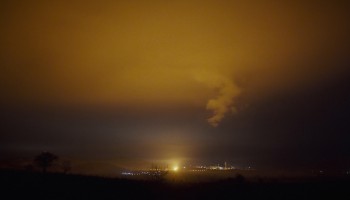On Tuesday, the EU issued a "yellow card" to Thailand, warning that if it did not crack down on illegal fishing practices including piracy and forced labor, the import of Thai fish to the EU could be banned.
Meanwhile, yesterday the US Congress held a congressional panel on the use of slavery by Thai-run fisheries.
The two developments came in the wake of an Associated Press (AP) report released last month, which revealed findings from a year-long investigation into forced labor in Thailand. It alleged that slave-caught seafood had made its way onto dinner plates throughout the world.
The report documents the use of forced labor in the small harbor town of Benjina, Indonesia. While the boats fish in Indonesia, many are reportedly run by Thai companies which have bribed government authorities.
One former member of the Thai parliament admitted to AP that he had bribed Indonesian officials to gain access to fishing waters.
Laborers in Benjina were given little or no pay. Many recounted experiences of starvation and abuse. Journalists reported that the town even featured a rusty cage in which those considered at risk of running away were imprisoned.
Hlaing Min, who claimed he was a runaway slave, told the AP: "If Americans and Europeans are eating this fish, they should remember us. There must be a mountain of bones under the sea [...] The bones of the people could be an island, it's that many."
Laborers, mostly from Myanmar, were reportedly brought to Indonesia through Thailand and used as forced labor. The fish they caught appears to have been sent back to Thailand, where it was mixed at processing plants with legitimately caught fish. By the time the catch arrived at a dinner table in Europe, Asia, or the US, it was impossible to tell whether or not it was the product of forced labor.
The US banned the import of goods made through forced labor in the Tariff Act of 1930, but the law has not been utilized since a case in 2000. Despite several governmental reports explicitly naming Thailand as a human trafficking hub, the country has been spared sanctions.
According to AP, it could be due to a "complicated political relationship" shared by the US and Thailand. The two cooperate on international security issues such as terrorism.






